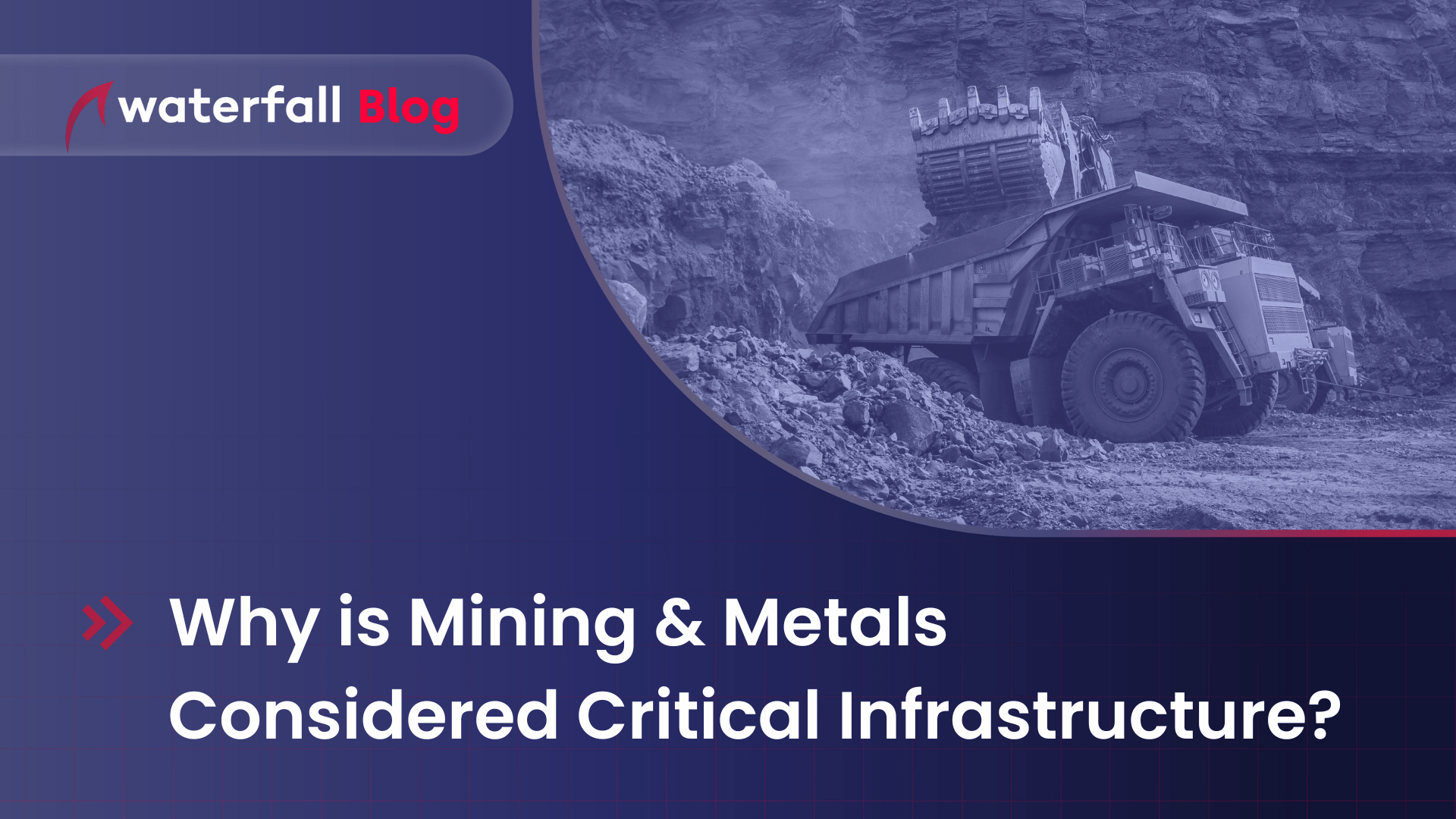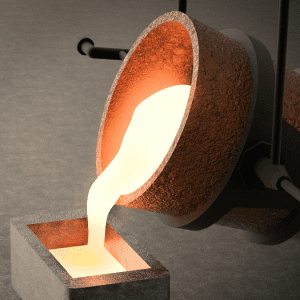Why is Mining & Metals Considered Critical Infrastructure?
Mining & Metals fills in one of the first links within the global supply chain. If something didn't grow, then it was mined. And any disruption to Metals & Mining impacts every link down the chain in today's complex global supply chains.
Waterfall team

An interesting point made in the Industrial Security Podcast #105 is that there are only two kinds of things in the world: “things that are grown, and things that are mined.” If something didn’t grow out of the ground, then it was dug out of the ground, and probably by a mining operation. This point really drives home just how critical the mining industry is to the functioning of society.
When it comes to discussions about protecting critical infrastructure, the conversation frequently progresses towards protecting the “supply chain” with many precautions taken against any kind of “supply chain attack”. If any “link” in the supply chain fails, then every link further down that supply chain is also impacted. Mining & Metals represent one of the earliest links in the supply chain, if not the first. Any major disruptions to Mining & Metals operations has a knock-on effect – everything that requires metals or mined materials will also see production disrupted.
Several additional factors contribute to classifying Mining & Metals as critical infrastructure:
“…there are only two kinds of things in the world: Things that are grown, and things that are mined.”
The Economic Importance of Mining and Metals:
Mining and metals industries contribute significantly to national and global economies by providing essential raw materials across many sectors, including construction, manufacturing, energy, and technology. These all generate employment, drive investment, and contribute to GDP growth, making them a vital component of economic infrastructure.
An Important Link in the Global Industrial Supply Chain:
Mining operations form the foundation of supply chains for a wide range of industries, providing raw materials and feed stocks to keep everything running. These materials are essential inputs for manufacturing processes, infrastructure development, and technological innovation, ensuring the smooth functioning of industrial infrastructure.
Critical ingredient for nearly all products:
Metals and minerals extracted through mining are essential for the production of critical products and infrastructure components, including steel for buildings and infrastructure, aluminum for transportation, copper for electrical wiring, and lithium for batteries. These materials are integral to the functioning of essential infrastructure systems, including transportation, energy, telecommunications, and defense.
Mining & Metals role in National Security:
 The reliable supply of strategic minerals and metals is important for national security and defense capabilities. Certain minerals, such as rare earth elements, are essential for the production of advanced technologies, including electronics, telecommunications, and defense systems. Ensuring the domestic production and supply of critical minerals reduces dependence on foreign sources and strengthens national security.
The reliable supply of strategic minerals and metals is important for national security and defense capabilities. Certain minerals, such as rare earth elements, are essential for the production of advanced technologies, including electronics, telecommunications, and defense systems. Ensuring the domestic production and supply of critical minerals reduces dependence on foreign sources and strengthens national security.
Given these factors, there is an understandable need to recognize the importance of Mining & Metals as critical infrastructure and implement policies to ensure their resilience, security, and sustainable operation.
Protecting mining and metals infrastructure from cyber threats, physical attacks, natural disasters, and other risks is essential to maintaining economic stability, national security, and societal well-being.
About the author
Waterfall team
Share
Trending posts
Hardware-Enforced Remote Access (HERA) – Under the Hood
Webinar: HERA – Hardware-Enforced Remote Access
Stay up to date
Subscribe to our blog and receive insights straight to your inbox